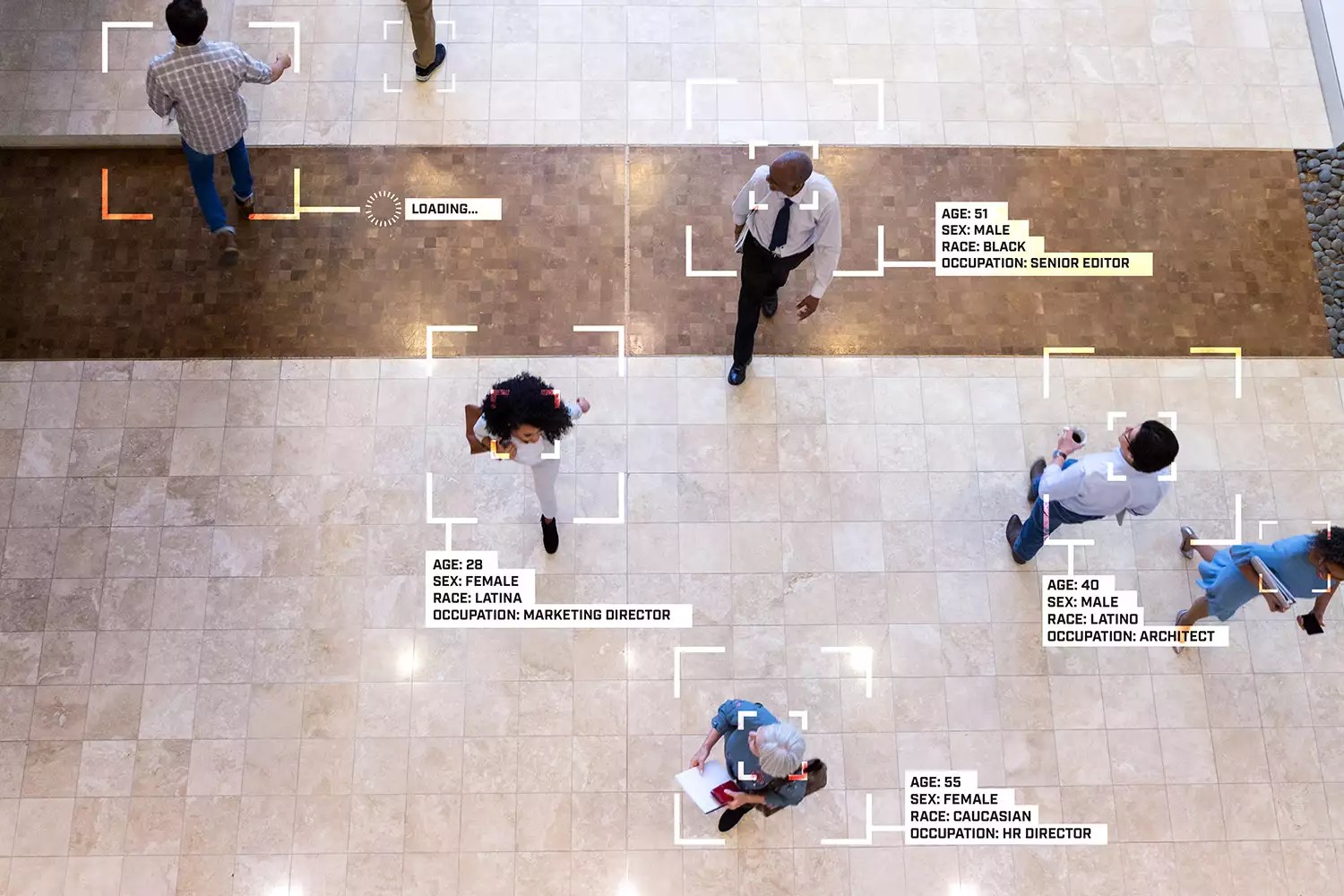Porcha Woodruff.Photo:NIC ANTAYA/The New York Times/Redux

NIC ANTAYA/The New York Times/Redux
When six Detroit police officers knocked on her door one morning this February and told Porcha Woodruff that she was under arrest for robbery and carjacking, she thought they were joking.
“Are you kidding, carjacking?” she asked them. “Do you see that I am eight months pregnant?”
As officers handcuffed her, she turned to her daughters who she had been getting ready for school. “Mommy is going to jail,” she told them.
Porcha Woodruff, nearing the final months of her pregnancy, when she was arrested and jailed due to a false facial match using AI technology.Law Offices of Ivan L. Land, P.C.

Law Offices of Ivan L. Land, P.C.
Her fiancé rushed downstairs to help, but the couple could not convince officers of Woodruff’s innocence.
The very pregnant Woodruff had nothing to do with the January carjacking — she just sort of resembled another Black woman who allegedly did. That woman, who police say called herself Trinidad, did not appear pregnant and was allegedly involved in a robbery and car heist. In February, police located the stolen car and arrested the driver, but the case was dismissed after the victim failed to appear in court. No one else has been charged in the case.
After Woodruff was identified as a potential suspect, the carjacking victim, who according to police may have been drugged at the time of the robbery, picked Woodruff from an array of six photos.

Courtesy of the Law Office of Ivan L. Land P.C.C
The Detroit Police Department, contacted Monday morning, had not responded Tuesday to PEOPLE’s request for a comment on Woodruff’s case or for data supporting their continued use of the technology.
The Wayne County Prosecutor’s Office told PEOPLE that the warrant “was appropriate based upon the facts” and noted that Woodruff had been charged based on the facial recognition record and subsequent witness identification before her arrest.
11 Hours in Custody
Woodruff spent much of the next 11 hours sitting on a concrete bench — no beds or chairs were available for the pregnant woman in the detention center — her stomach cramping with “whole belly tightening” contractions every 10 to 15 minutes, according to her medical records included in the civil complaint.
Porcha Woodruff with her family.Law Offices of Ivan L. Land, P.C.

At the Detroit Detention Center, Woodruff answered Detective LaShauntia Oliver’s wide-ranging set of questions recorded in a partial transcript of their interaction included in the civil complaint: from if she often visited the BP gas station where she was mistakenly placed to the number of tattoos she had on her right arm — and if the detective could look at them. (Woodruff let her see the tattoos scrawled across her wrist and arm.)
Then Woodruff asked a question of her own: “How did my name come up?”
Oliver mentioned the photo line-up.
“Did the victim say the female was eight months pregnant?” Woodruff asked.
“No,” the detective said.
Porcha Woodruff was booked into the Detroit Detention Center earlier this year after faulty facial recognition technology misidentified her as a suspect in a burglary and carjacking.Law Offices of Ivan L. Land, P.C.

Facial recognition technologies “may transform innocent people into suspects,”Nathaniel Erb, State Policy Advocate at Innocence Projecttells PEOPLE. “This increases the risk that innocent people will be wrongfully convicted.”
Erb says that once law enforcement agents zero in on a suspect “even [if] clearly exculpatory evidence often does not derail the investigator’s certainty of the innocent person’s guilt.” Moreover, the high-tech qualities of facial recognition gives “the impression of infallibility,” muddying the waters and swaying investigators away from “other methods for corroborating or excluding a lead," says Erb.
That’s what Woodruff claims happened in her case, according to the civil complaint filed against the city of Detroit and Oliver, which alleges that “despite knowing” that Woodruff “was not involved in the robbery or carjacking, Detective Oliver directed” her to return to the holding cell.
About two hours after her interview with Oliver, Woodruff was arraigned and charged with robbery and hijacking, according to the civil complaint. She was released on a $100,000 personal bond around 7 p.m.— about 11 hours after her arrest.
Her fiancé rushed her from court to the hospital. Her heart rate had dipped and she was dehydrated. Previously diagnosed with gestational diabetes, she had been unable to eat much of what the jail made available to inmates, and drank only a lemonade during her incarceration.
Want to keep up with the latest crime coverage? Sign up forPEOPLE’s free True Crime newsletterfor breaking crime news, ongoing trial coverage and details of intriguing unsolved cases.
Studies show that facial recognition technology is much more likely to misidentify People of Color compared to White people.Getty

Getty
Research Shows Racial Disparities
source: people.com